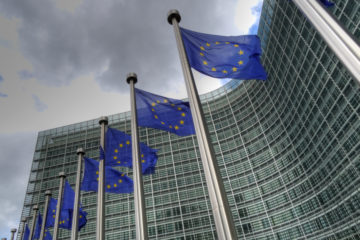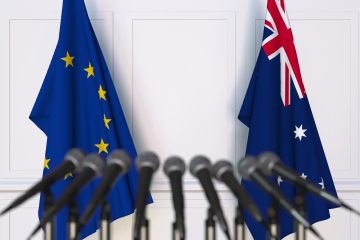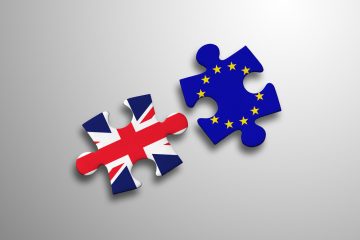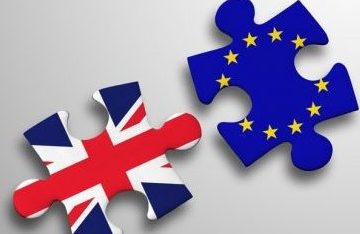Within the EU, Redistributive CAP Mechanisms Can Make a Big Difference for Small Farms
The proverbial thunderclouds are finally dispersing over the fields and farms of Europe. The protracted negotiations over the European Union’s next Common Agricultural Policy (CAP) budget, which began in 2018, finally concluded in June with a provisional agreement between the EU’s Commission, Council, and Parliament. While the storm is not officially over – Parliament must ratify the deal in the coming autumn – the warring factions have retreated to lick their wounds for the time being, with both environmentalists and small farmers frustrated that the final proposals either did not address their demands or did so in a watered-down fashion. Of particular concern to small farmers’ groups is the mandatory implementation of policies designed to redistribute CAP funds and level …

Can Europe Make It? The EU After Brexit
Brexit has weakened populists on the continent? This is wishful thinking. No longer willing to leave the EU, instead populists are determined to take it over. Brexit is a moving target. Each time we think we have a deal, the British House of Commons decides to re-think. It’s like the famous passage from T.S. Eliot: “Time yet for a hundred indecisions/And for a hundred visions and revisions,/ Before taking a toast and tea.” Boris Johnson expected the Parliament to approve the exit deal he reached with the EU. Instead, the Parliament voted for an amendment tabled by a Tory MP, Sir Oliver Letwin. The amendment withholds approval of the deal, until the legislation to enact it is safely passed – …

Fiscal Reform in the Eurozone – A Complex Political Issue
With Brexit looming over the health of the European economy and Trump imposing $7.5 billion tariffs on European imports to the United States, the Eurozone faces political challenges. Pitted along a spectrum ranging from pro-stimulus to pro-austerity positions, different politicians advocate for distinct economic futures for the Eurozone. The situation is further complicated by trade disputes, macroeconomic pressures, and a slowing European economy. The outcome of fiscal reform in the Eurozone will depend on who ends up controlling European economic and monetary politics. To address the growing threat to the European economy, the European Union (EU) has confirmed Paolo Gentiloni as the new European Commissioner for Economic Affairs. In his confirmation hearing, Gentiloni presented a reform agenda for the Eurozone …

Consider the Bigger Picture: How to Advance the EU-Australian Trade Negotiations
The EU and Australia have been in negotiations over a Free Trade Agreement (FTA) since 18 June 2018. There is wide-spread agreement that closer ties and increased trade would be mutually beneficial. However, a substantial obstacle is impeding progress: The EU has asked Australia to ensure the protection of speciality goods of regional origin denoted by Geographical Indicators (236 spirits and 172 agricultural and other foodstuffs). A Geographical Indicator (GI) is a distinctive certification sign that is utilised to help identify a product whose quality, reputation and other criteria is linked to its geographical origin. Within the EU, GIs are used to protect agricultural products and foodstuffs, wines and spirits. Examples include parmesan, champagne or Kalamata olive oil. Thus, olive …

Britain’s Brexit Bargaining: Insights from Game Theory
As we enter a key Brexit endgame week, a few thoughts – informed by game theory – come to mind on the ironies of the British negotiation position and strategy thus far. The basic claim of bargaining theory is that you need a strong ‘reversion point,’ that you can go back to if bargaining fails. Once Article 50 was activated, that was necessarily ‘No Deal’ for the UK. But No Deal is likely self-damaging and certainly divisive. So, it did not and cannot represent a credible reversion point. Without this clear reversion point, one option is to pretend you want something self-damaging – the ‘madman’ approach. For this tactic to work, though, you need to be believed to be ‘mad’ …

It’s not you, it’s us! What the Brexit divorce tells us about the EU’s own weaknesses
According to social media in Russia, “Brexit” has just assumed a new meaning: you say goodbye, but never leave. Vasilij Petrovich has drunk half a bottle of vodka, broken some precious porcelain, offended the hosts, and despite saying goodbye, he is still sitting at the table and drinking. You feel like pushing him out to the cold, but this would create more problems than keeping him in. This story reflects the current European dilemma. For many years, the United Kingdom enjoyed the benefits of European integration without trying to become a constructive, let alone affectionate, EU member. Two years ago, it decided to leave the EU, but is still pondering whether to leave through the door, window or chimney. The …

Cybersecurity is forcing a rethink of strategic autonomy
Just a few days ago, European Commission President Jean-Claude Juncker presented his 2018 State of the Union speech with the title “The Hour of European Sovereignty”. In the speech, he argues that the time has come for the EU “to become more autonomous and live up to our global responsibilities”. The question is how to make this ambition become a reality, how to achieve strategic autonomy. Especially in the context of cybersecurity, strategic autonomy is becoming a widely discussed topic. The growing interest in the link between “digital” or “cyber” and strategic autonomy is driven by the increased dependency on transformative digital technologies throughout the economy and society, combined with the explosive growth of cyberthreats and incidents. The political context …

Trump has compromised climate security strategies
Much has been said about the global environmental, economic and leadership consequences of United States President Donald Trump’s decision to withdraw from the Paris climate agreement but there is also a national security dimension. Trump’s decision ignores an important development in global security centred on climate change. The US had been in a prime position to link climate to international security which, rightly or wrongly, could be leveraged for foreign policy in pursuit of climate security. The US has been a leader in climate security, an approach rivalling climate justice reasoning in climate politics. For much of the history of international climate politics, there has been a dominant discourse of climate justice. Early environmental conferences focused on planetary justice and …









